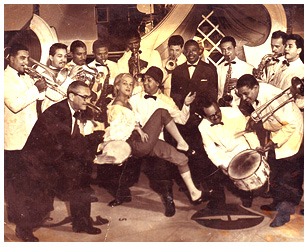







 Music was only one outlet for Barroso's creativity. A lawyer by training, he balanced his musical career with work as a radio announcer, writer, humorist, reporter, producer, emcee, interviewer and soccer commentator. He was such a fan of the Flamengo soccer club of Rio de Janeiro that he turned down an invitation to move to the United States at the peak of his fame in the 1940s because he didn't want to be so far from the team.
Music was only one outlet for Barroso's creativity. A lawyer by training, he balanced his musical career with work as a radio announcer, writer, humorist, reporter, producer, emcee, interviewer and soccer commentator. He was such a fan of the Flamengo soccer club of Rio de Janeiro that he turned down an invitation to move to the United States at the peak of his fame in the 1940s because he didn't want to be so far from the team.
Although Barroso's father, Joao Evangelista, was a well-known poet, guitarist, singer and lawyer, he became an orphan at the age of seven when his parents died and was raised by his grandmother and aunt. At his aunt's insistence, Barroso began studying the piano at the age of ten, practicing a mandatory three hours a day. Within two years, he was playing well that he was hired to accompany silent movies at the local theater. Although he inherited money, at the age of seventeen, when his uncle died, Barroso spent it quickly and was forced to turn to music for an income. In addition to playing piano in cinemas, cabarets and with orchestras, he became involved with musical theater. Joining forces with lyricist Luis Peixoto, Barroso composed more than sixty tunes as well as writing scripts. Barroso also hosted many radio shows. He died of liver cirrhosis on February 9, 1964 in Rio de Janeiro.



